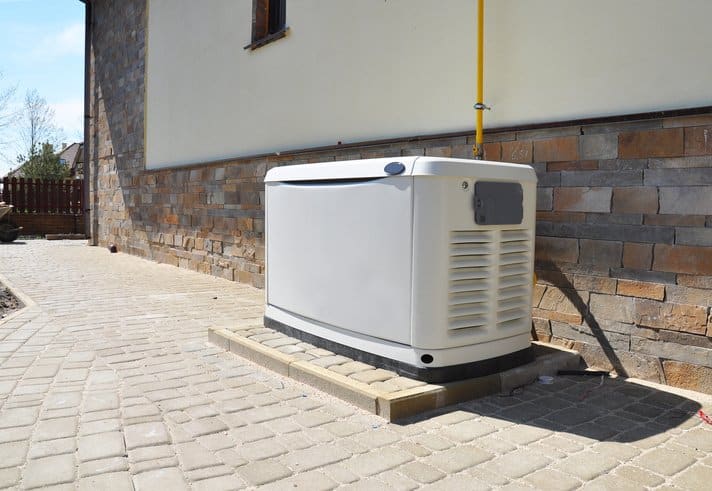
Every year, when hurricane season rolls around the corner, people start considering the idea of purchasing a generator. In general terms, a generator is a device that converts mechanical energy from an external source to electrical energy thanks to electromagnetism. We rely on these machines to power up our appliances, homes, and businesses when we need an outside source of electricity. It’s the perfect backup plan to protect us from all the power outages. However, purchasing a generator is not the first step when preparing for whatever the weather might bring. First and foremost, you have to understand how they operate so that you can choose the best option for you and use it safely.

A&J Generator
So, let’s take a closer look at how a generator works.
A generator does not actually create electrical energy. How it really works is that the generator uses the mechanical (also called kinetic) energy supplied from the power source to force movements of electric charges through an external electric circuit. This flow of electric charges is the output current that your generator supplies to your home or commercial appliances. The cyclical process that provides the backup power happens naturally and quickly because of how all of the machine’s parts react and work together.
Every electric generator has the same basic components: an engine, an alternator, the fuel system, a voltage regulator, a cooling and an exhaust system, a lubrication system, the battery charger, a control panel, and its frame. The engine is the source of input of mechanical energy to the generator, which means that it gets directly affected by the type of fuel that you use. Most generators run on diesel, gasoline, liquid propane, or natural gas. It is usual for smaller engines (such as the ones found at a typical house) to run on gasoline or diesel, while larger engines run on liquid propane or natural gas. On the other hand, the alternator is the part of the machine that produces the electrical output supplied by the engine thanks to various pieces that work together to create movement between the electric and magnetic fields. Moving along, a fuel system is composed mainly of the fuel tank, and its connections to the engine and drain pipe. Working closely with all the before mentioned parts, is the voltage regulator. This component standardizes the voltage that comes from the generator. It is easy for the entire generator to get heated up when all of its pieces are moving and operating to produce electricity, which is why is necessary to have a good cooling and exhaust system. Water and hydrogen are two of the most commonly used coolants to redirect the heat from the generator through a heat exchanger. Another frequently used method of cooling is a radiator and a fan mounted on the machine. Similarly to heat, fumes are emitted regularly from the engine and it is important to install a good exhaust system to get rid of these gases that can contain highly toxic chemicals. Not only is it important to avoid the overheating of the machine, but you have to make sure the parts can move easily. Here is where the lubrication system comes into play, ensuring durability for a long period of time. When you go to turn your generator on/off, you’ll see that the “start” function is battery-operated. The battery charger supplies the battery of the machine with a precise voltage to keep it from self-discharging and powering off. This will, as a result, keep the control panel functional. This panel is the user interface of the generator and contains options for as to how you wish to regulate your generator. Some of the options are automatic starts and/or shut-downs, engine control switch, and frequency switch. The panel also shows important parameters such as the temperature, battery voltage, operating voltage, and oil pressure. Finally, we have the frame- which is the main assembly of the appliance. This will be the structural base support, and will keep the components safe.
Understanding how generators work is not the easiest thing for everybody out there. Luckily, you don’t have to worry about it! Contact A&J Generators and let one of our specialists help you determine your best plan of action. We can help you decide the best brand, fuel type, and generator size for your home and business needs. Our company specializes in assessing every client’s individual situation and providing all the services needed in Connecticut: from installation to repairs and maintenance. Don’t wait until you need a backup plan, and buy a generator today. Or, if you own your generator already, count on us to make sure it is fully equipped and ready to go. Be ready all day, every day.
